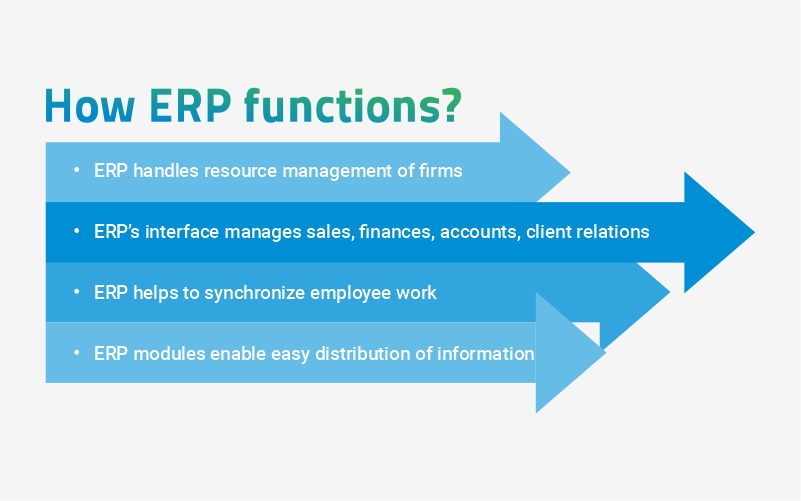Enterprise resource planning, or ERP, is a category of software that businesses use to manage information throughout the whole organisation. ERP software and solutions that are delivered and maintained in the cloud as opposed to a company hosting their system on-site are referred to as cloud ERP. Even though each organisation that exists today is unique, they all face the same problem: they all need to have access to technology in order to innovate, develop, and grow swiftly if they are to effectively compete in the current business environment. They want cutting-edge, internationally interconnected, and constantly updated software tools and systems that enable them to devote more of their time and resources to implementing growth projects and less to regular IT management. Cloud ERP can help in this situation.
With rapid advancement of technology more companies are considering to opt for cloud ERP services. Cost, dependability, quickness, and accessibility are a few of the characteristics that contribute to ERP’s growing popularity. With cloud deployment, businesses can concentrate on managing their company rather than their IT infrastructure. With cloud-based SaaS systems, the vendor is responsible for management and maintenance, not your company. Software updates are continuous and smooth with cloud ERP, and they are already covered by your one-time, recurring charge. By spending more time on duties that support strategic growth plans, your team may increase their value to the company by implementing cloud ERP, which also requires little to no IT participation.
Cloud ERP software is a modern, affordable, and comprehensive option for companies operating in the new digital economy.
How does an ERP work?

ERP covers all facets of resource management for enterprises of all sizes. The term “resources” can apply to a wide range of things, including but not limited to tools, labour, and cash. Businesses employing ERP software may manage these resources and merge many departments, such as sales, finances, accounting, and customer relationship management, through a single, centralised application and interface (CRM). A modern, economical, and comprehensive answer for companies working in the modern digital economy is cloud ERP software. All employees have access to company-wide information that is shared and synchronised in the ERP software, putting everyone on the same page simultaneously.
Due to cloud-based ERP solutions, businesses may take use of all of the benefits of ERP software online.
Due to all necessary hardware and software are kept inside the company’s walls, private cloud ERP is set up, secured, and maintained by the IT personnel of the firm. It’s possible that employees can only access the system remotely using a third-party programme and/or device, and setup costs can be high.
An ERP system functions by reducing the amount of resources required to run the company profitably and improve business operations. ERP system differs from a single application as it enables other enterprise modules of your business to operate from a single database. The system gathers information from several departments of the company. The information is put in a central location where it may be accessed by staff members who require it. It eliminates the silos that plague many firms and makes sure that people who require information have access to it. Let’s say the ERP system at your organization is virtually entirely automated. ERP enters your data for you in the background and shares it with other units that require it.
The inventory management modules, for instance, must record information about shipment orders for the final item in stock and notify the appropriate departments so that the inventory may be restocked. Additionally, the sales team will be made aware so that it doesn’t make guarantees it can’t keep.
About Author
Olivia Jones
Technology Specialist
Olivia is a highly skilled and experienced Technology Specialist with 10+ years of hands-on expertise in the rapidly evolving field of technology. She has a proven track record of successfully implementing and managing a wide range of technological solutions, ensuring optimal performance and efficiency. Olivia possesses a deep understanding of industry trends and emerging technologies, enabling her to provide strategic guidance and drive innovation within organizations. With a strong focus on problem-solving, she consistently delivers tailored solutions that align with business objectives while maximizing productivity and cost-effectiveness.
About SoftTech Engineers
A leading IT company (www.softtech-engr.com) facilitating business and technology transformation across the AEC industry through innovative software products and solutions. Equipped with 25+ years of deep domain expertise and industry knowledge, SoftTech has helped more than 4500 clients & government organizations, with more than 25000 users in India and around the world to gain a competitive edge and lead from the front in the industry.

